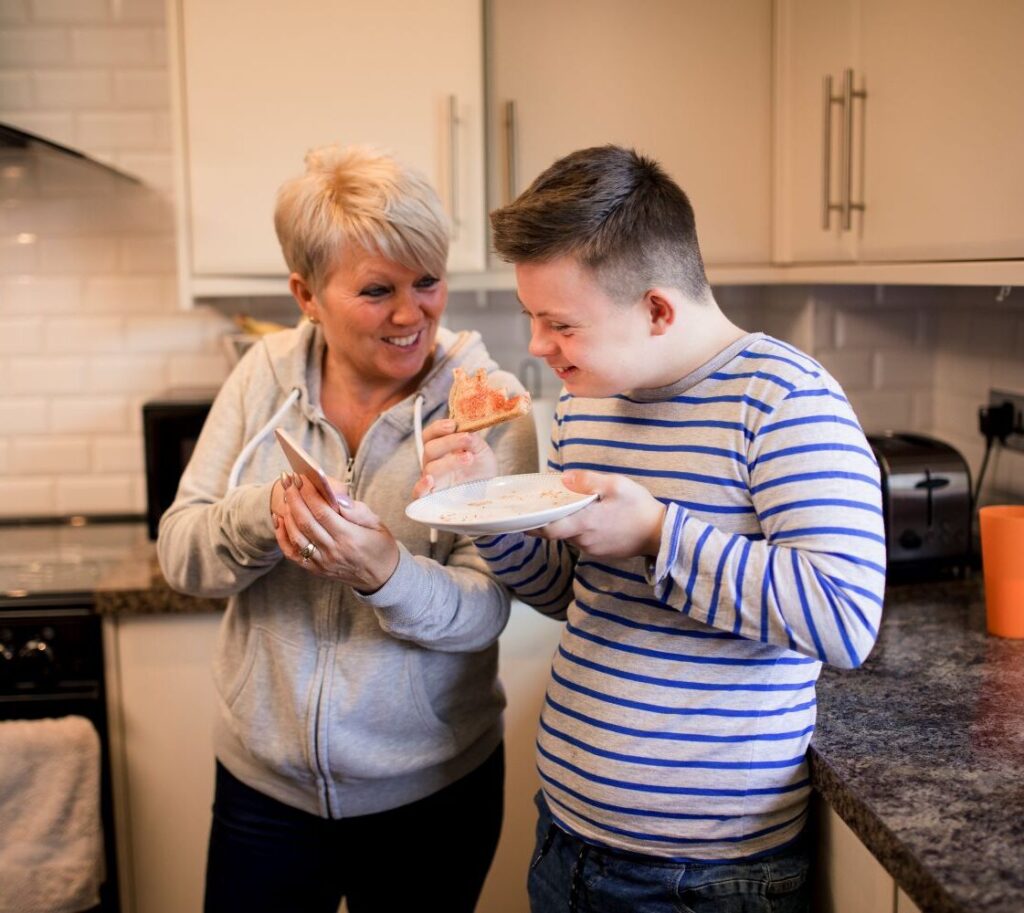The rising cost of living means more and more people are struggling to make ends meet. In this article, we’re looking at some debt management strategies and what you can do if you need more support when you’re faced with increasing debt.
Firstly, it’s important to know there’s help available if you’re worried about debt. You don’t have to struggle alone. As with many situations that cause anxious thoughts and feelings, it may be tempting to ignore the issue. But if you’re in a position where your outgoings are consistently higher than your income, it’s best to do something about it sooner rather than later when the debt may have worsened.
In this article, we’ve included some general information to help you get a better understanding of your financial situation and the steps you can take if you’re in debt. But if you’re struggling to pay your bills now, need more immediate help or are very worried about your debt, skip straight to Where to get debt management help at the bottom of the article, and contact one of the debt charities listed there.
When you’re thinking about how to manage debt, breaking it down into steps can help it feel more manageable.
Steps to manage your debt
1. Work out your budget
You first need to understand exactly how much money you have coming in and going out each month, and how big the gap is. Use a budgeting tool, like this one from MoneyHelper, to help you work this out. Make sure the figures you use are accurate and aren’t estimated. You may need to gather pay slips and statements to do this, but having an accurate picture of your finances will really help.
For more information on this topic, see Barclays LifeSkills’ guide to living on a budget or budgeting and how to stay out of debt.
While you’re working on your budget, it’s also a good idea to use a benefits calculator to make sure you’re claiming everything that you’re entitled to.
2. Look at where you can make spending cuts
When you’ve worked out how much money is coming in and going out each month, see if there are any easy cuts you can make straight away. For example, are there any monthly subscriptions you don’t use any more but had forgotten about?
If you aren’t able to make any easy savings, you might need to look for other ways to reduce your outgoings. For example, do you spend money on things you might consider nice to have rather than essential? Are there any branded items you buy that could be switched to unbranded or own-brand products?
This will look different for everyone. Depending on what you spend each month and what your necessary outgoings are, some people will find it easier to make spending cuts than others. For more suggestions, see our articles Help with managing your finances through the cost-of-living crisis and Tips to help you save money during the summer.

Online workshop: How to save more money
The Family Action LifeSkills team are running a free online workshop on 3 July from 10-11am. Sign up to learn practical tips and tricks to save more money in your day-to-day life.
Sign up for the workshop3. Decide your priority and non-priority debts
If you’ve been able to identify some cuts to make, you can then use that money to pay off some of your debts. But before you make any payments, divide your debts into priority and non-priority. That will help you decide which bills to pay first.
Priority debts can lead to serious consequences if they aren’t paid, like eviction, legal action, or loss of essential services. They should be dealt with first.
Examples of priority debts include:
- Mortgage or rent
- Council tax arrears
- Gas and electricity bills
- TV licence
- Child maintenance
If you’re struggling to make payments on your mortgage, rent, council tax or energy bills, it’s best to contact the provider before missing a payment. You might be able to switch mortgage deal, or arrange a payment plan for your energy bills, rent or council tax.
For guidance on which order to tackle your bills, try MoneyHelper’s debt priority tool. This tool also explains in detail what action you can take if you’re concerned about missing payments. For example, although your water supply can’t be cut off like your electricity can, MoneyHelper suggests putting it before other non-priority bills as it’s a household essential.

Non-priority debts are still important, but the consequences of missing payments are usually less severe. You may face extra charges, damage to your credit score, or debt collection, but usually not legal action right away.
Examples of non-priority debts include:
- Credit cards
- Store cards
- Personal loans
- Overdrafts
- Buy-now-pay-later agreements
With credit cards, you might be able to switch to a different product with 0% interest for a period of time. While this won’t last forever, a product with 0% interest can give you a bit of breathing space to reduce some of your debt without more interest building up each month.
Where to get debt management help
If you’re in a position where you’re struggling to meet your minimum outgoings, such as your rent or mortgage and your household bills, or you’ve worked through the steps above and still haven’t been able to make enough savings, speak to a debt charity. These organisations will work with you and your individual situation to help you for free:
If necessary, these organisations should also be able to advise you on other more formal debt solutions you may have heard of, like a debt management plan or administration order, and what may be most suitable for you. For that reason, make sure you speak to a debt charity before taking any other action.
If you feel uncomfortable reaching out to a debt charity you’re not familiar with, but are familiar with another organisation like a children’s centre, you could reach out to the trusted organisation to help with that initial call.
Debt management companies are different to charities as they charge fees. It’s important to be sure you understand the charges before going to one for help. This is why we suggest speaking to a debt charity first. Debt charities don’t make any money from those they help, so you know their only aim is to help you regain control of your finances.
Debt is manageable with the right support. Try not to ignore the issue and instead get help as soon as you can when you realise you’ve fallen into debt. Even if you’ve been in debt for a while, or your debt is getting worse, getting help when you can means you can start taking steps sooner to make it more manageable.

Call, text, email or web chat FamilyLine
If you’re feeling overwhelmed, worried or upset about any aspect of your family life, FamilyLine is here for you. We offer free emotional support and guidance on family relationships, conflict, parenting, caring, financial worries and more.
Contact FamilyLine











